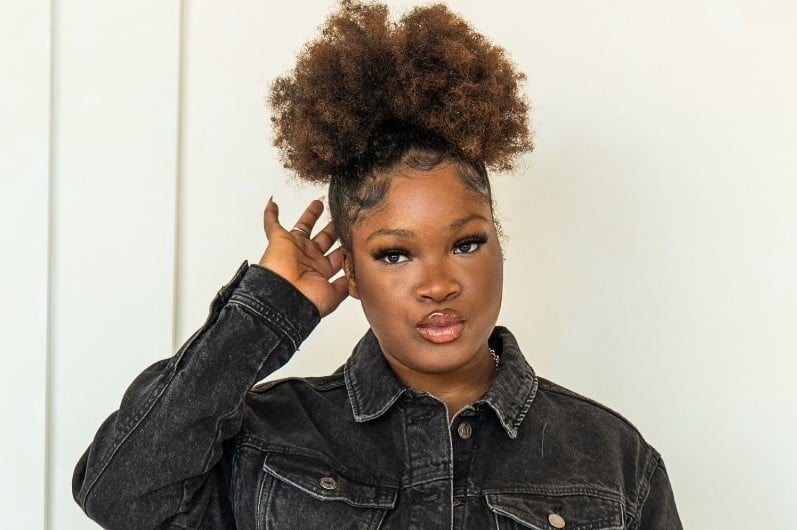Manye Fi, a British-Ghanaian singer, has sparked a debate about language and its role in achieving musical success within the Ghanaian music industry. Her stance challenges the conventional wisdom, often championed by established artists, that incorporating the Twi language is essential for resonating with the Ghanaian audience. This viewpoint was recently highlighted in an exchange with Ghanaian singer Highest Eri, who suggested that Manye Fi infuse her music with Twi lyrics to enhance her popularity in Ghana. Manye Fi, however, respectfully refuted this advice, asserting her belief in the universality of music and its ability to transcend linguistic boundaries. She contends that the quality and appeal of her music, rather than the language in which it is delivered, will ultimately determine its success.
Manye Fi’s perspective underscores a broader conversation about artistic expression and cultural identity within the global music landscape. While acknowledging the prevalence of Twi as a major language in Ghana, she argues that musical impact hinges on more fundamental elements, such as melody and rhythm. She believes that these core components of music possess a universal resonance, capable of connecting with listeners regardless of their native language. This perspective reflects a growing trend in the music industry where artists are increasingly embracing multilingualism and cross-cultural collaborations, blurring linguistic lines and creating music that appeals to diverse global audiences.
The debate between Manye Fi and Highest Eri highlights the tension between honoring cultural heritage and embracing artistic freedom. While Highest Eri’s advice stems from a desire to see Manye Fi connect with the Ghanaian audience on a deeper level through their shared linguistic heritage, Manye Fi’s stance advocates for a more inclusive approach to music creation, one that prioritizes artistic expression over adherence to linguistic norms. This difference in opinion reflects the complex interplay between cultural identity, artistic integrity, and commercial success in the music industry.
Manye Fi’s argument resonates with the increasingly interconnected nature of the modern world, facilitated by the internet and social media. Music now travels across borders with unprecedented ease, exposing listeners to a wide range of languages and musical styles. This global exposure has created a more receptive environment for artists who choose to express themselves in languages other than the dominant ones within a particular market. Manye Fi’s confidence in her music’s ability to transcend language barriers reflects this evolving musical landscape.
The discussion also touches on the evolving definition of “Ghanaian music”. Traditionally, Ghanaian music has been closely associated with specific languages and cultural expressions. However, with increasing globalization and the emergence of a diaspora, the boundaries of what constitutes “Ghanaian music” are becoming more fluid. Artists like Manye Fi, with their hybrid cultural backgrounds and musical influences, are challenging traditional definitions and contributing to a more diverse and nuanced understanding of Ghanaian music.
Ultimately, the debate about language in Ghanaian music highlights the ongoing evolution of the industry and the complex factors that influence an artist’s success. While language undeniably plays a role in cultural connection, Manye Fi’s stance reminds us that music’s power to move and connect transcends linguistic boundaries. The future of Ghanaian music, and indeed music globally, likely lies in embracing this diversity of expression and recognizing the universal language of melody and rhythm.


